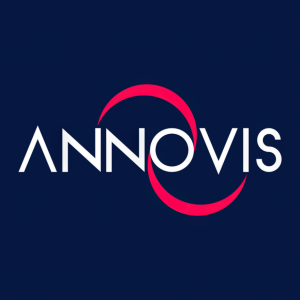Annovis Announces Novel Biomarker Data in Alzheimer’s Patients Supporting Buntanetap’s Potential as a Disease-Modifying Treatment
Rhea-AI Summary
Annovis (NYSE: ANVS) reported novel biomarker results from its Phase 2/3 Alzheimer's study (NCT05686044) showing that buntanetap reduced inflammatory markers IL-5, IL-6, S100A12, IFN-γ, IGF1R and lowered NFL after three months. Responses were seen in all patients with positive pTau217, including mild and moderate stages. Company cites prior cognitive benefit in mild AD and notes buntanetap is being evaluated in a pivotal Phase 3 early AD trial (NCT06709014) with a 6-month symptomatic readout and an 18-month disease-modification readout. Full biomarker data will be presented at CTAD Dec 1-4, 2025.
Positive
- Reduction in inflammatory markers IL-5, IL-6, S100A12, IFN-γ, IGF1R
- Decrease in NFL, indicating improved neuronal integrity
- Biomarker responses observed in all pTau217-positive patients
- Phase 3 early AD trial (NCT06709014) actively enrolling
Negative
- Biomarker analysis conducted after only three months of treatment
- Disease-modifying potential unconfirmed until 18-month readout
- No quantitative effect sizes for biomarkers reported in this release
News Market Reaction – ANVS
On the day this news was published, ANVS declined 3.08%, reflecting a moderate negative market reaction. Argus tracked a peak move of +28.3% during that session. Argus tracked a trough of -37.6% from its starting point during tracking. Our momentum scanner triggered 14 alerts that day, indicating notable trading interest and price volatility. This price movement removed approximately $1M from the company's valuation, bringing the market cap to $44M at that time. Trading volume was exceptionally heavy at 37.6x the daily average, suggesting significant selling pressure.
Data tracked by StockTitan Argus on the day of publication.
MALVERN, Pa., Oct. 09, 2025 (GLOBE NEWSWIRE) -- Annovis Bio, Inc. (NYSE: ANVS) (“Annovis” or the “Company”), a late-stage clinical drug platform company pioneering transformative therapies for neurodegenerative diseases such as Alzheimer's disease (AD) and Parkinson's disease (PD), today announced new results that demonstrate buntanetap’s ability to attenuate inflammation and improve cellular health in Alzheimer’s patients, suggesting potential disease-modifying effects beyond symptomatic relief.
The analysis of patient samples from the Phase 2/3 AD study (NCT05686044) revealed that buntanetap targets key biomarkers of neuroinflammation and neurodegeneration. The following inflammatory markers were reduced in the treatment group vs placebo: IL-5, IL-6, S100A12, IFN-γ, and IGF1R. These molecules are known to drive pro-inflammatory responses in AD and have been associated with elevated amyloid-β burden. By modulating these pathways, buntanetap may reduce chronic inflammation and attenuate amyloid accumulation. Equally compelling was the observation that buntanetap decreased levels of NFL, a protein fragment released from damaged neurons, indicating improved cellular integrity and neuronal health. Notably, these responses were observed in all patients with positive pTau217 plasma levels, including those with mild and moderate stages of the disease.
"Alzheimer's disease is multifactorial, and targeting just one of its causes has historically yielded limited therapeutic benefit," commented Maria Maccechini, Ph.D., President and CEO of Annovis. "What makes buntanetap truly promising is its ability to target multiple neurotoxic proteins simultaneously and interrupt the toxic cascade—something we have long believed was necessary for meaningful progress. These biomarker results validate our preclinical and earlier clinical findings and reinforce our confidence that we are on the right track."
Buntanetap has previously demonstrated clinical benefits in the Phase 2/3 study, where mild AD patients saw significant cognitive improvement. The convergence of these findings with the novel biomarker data, which indicate reduced inflammation and improved neuronal health, underscore buntanetap’s promise as a potential disease-modifying therapy that may fundamentally alter the course of Alzheimer’s. Buntanetap is currently being evaluated in a pivotal Phase 3 trial in early AD (NCT06709014), which is actively enrolling and treating patients across the U.S. The study is designed to have a 6-month readout focused on symptomatic improvement and an 18-month readout aimed at assessing disease modification.
“We are highly encouraged by these new biomarker data,” added Cheng Fang, Ph.D., SVP Research & Development. “While the current analysis was conducted in patients after just three months of treatment, it confirmed the target and pathway engagement of buntanetap, only bolstering our confidence in the outcome of the Phase 3 study. Since the biomarker signal typically becomes more evident as the disease advances, we anticipate observing an even stronger treatment response at the 18-month analysis.”
The full biomarker data will be presented during the Clinical Trials on Alzheimer's Disease (CTAD) conference in San Diego, taking place December 1-4, 2025. Additional details regarding the presentation will be announced closer to the conference date via a separate news release.
About Annovis
Headquartered in Malvern, Pennsylvania, Annovis is dedicated to addressing neurodegeneration in diseases such as Alzheimer’s disease (AD) and Parkinson’s disease (PD). The Company is committed to developing innovative therapies that improve patient outcomes and quality of life. For more information, visit www.annovisbio.com and follow us on LinkedIn, YouTube, and X.
Investor Alerts
Interested investors and shareholders are encouraged to sign up for press releases and industry updates by registering for email alerts at https://www.annovisbio.com/email-alerts.
Forward-Looking Statements
This press release contains forward-looking statements under the Securities Act of 1933 and the Securities Exchange Act of 1934, as amended. Actual results may differ due to various risks and uncertainties, including those outlined in the Company’s SEC filings under “Risk Factors” in its Annual Report on Form 10-K and Quarterly Reports on Form 10-Q. The Company undertakes no obligation to update forward-looking statements except as required by law.
Contact Information:
Annovis Bio Inc.
101 Lindenwood Drive
Suite 225
Malvern, PA 19355
www.annovisbio.com
Investor Contact:
Alexander Morin, Ph.D.
Director, Strategic Communications
Annovis Bio
ir@annovisbio.com








